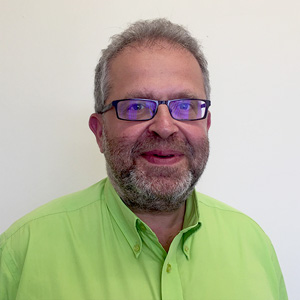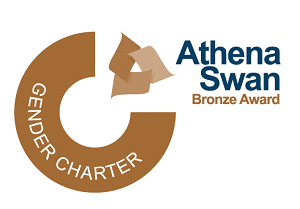Biography
I was educated at the universities of Oxford and Birmingham, and have been teaching at Keele since 1994. My area of academic specialism is contemporary Russian politics, and I am the author among other pieces, of Public Opinion in Postcommunist Russia (1997) and Contemporary Russia (with Edwin Bacon, 2006), as well as teaching second and third year modules on modern Russia.
My other major interest is political education. I am the author of a number of pieces on politics curricula and on employability and politics degrees. My pioneering module in The Practice of Politics, which began in 2007, has sought to ensure that a high standard of career development education is available for politics and international relations students, as well as providing a platform for students to develop their public speaking, people skills and other personal qualities vital for becoming graduates who are able to make a difference. I have also participated in a number of national educational development projects, for example on citizenship education and graduate employability.
My achievements in the area of learning and teaching at Keele have been recognised in a number of ways in the recent period. In 2013 I was awarded a University Individual Award for Learning and Teaching Excellence, and in 2014 I was one of the inaugural winners of a Keele Student-Led Teaching Award, in the category of Developing Student Potential. I am also an honorary lifetime member of both Keele University Students Union and the Keele Postgraduate Association; in both cases the citations mentioned my contributions to improving the quality of the student experience at Keele.
I currently work for Keele on a 0.8 contract, and outside my time at Keele I am also a practitioner of various forms of complementary therapy.
Research and scholarship
I am currently employed as a Senior Teaching Fellow, and so my focus is on teaching and on supporting the smooth running and further development of educational programmes here at Keele. However I also retain an interest in contemporary Russia and the former Soviet Union, and also actively engage in debates about the development of politics teaching. A secondary interest is in the radical implications of new scientific thinking for the study of politics. Some recent articles include
Wyman, M. and Longwell S. (2010) ‘Teaching the Practice of Politics’ in Steven Curtis and Alasdair Blair, The Scholarship of Engagement for Politics: placement learning, citizenship and employability, Birmingham, C-SAP, 2010, 123-50
Wyman, M., Herbert, J. and Lees-Marshment J (2012), ‘From Politics Past to Politics Future: Employability and Politics Curricula in the 21st Century’ in Cathy Gormley-Heenan and Simon Lightfoot (eds) Teaching Politics and International Relations, Basingstoke: Palgrave-Macmillan, 236-54
Teaching
I currently coordinate the following modules
Russian Politics and Society: this introductory Russian politics course, intended for second year students, addresses the following areas:
- An historical overview, focussing on dominant political values and traditions, and on how political institutions were formed in the Soviet period.
- Governing structures, institutional interactions and the mechanics of power in the Soviet Union and in postcommunist Russia.
- The development of civil society in Russia.
- Russia and democracy: democratic development and obstacles to democracy in contemporary Russia.
Modern Russia: This final year module is designed as a complement to the second year module Russian Politics and Society because it explores in detail communism’s aftermath, and asks what kind of political and economic systems have emerged in Russia and her neighbours since 1991.
The Practice of Politics: this module, designed for second year students, is designed:
- To help students to understand and research the graduate labour market for politics and international relations students and to learn techniques for career planning and career development
- To assist students to develop the transition skills, in succeeding in job applications, interviews, assessment centres etc. that they need to pursue their chosen career
- To provide a platform for students to develop their political skills, through intensive study of issues such as effective public speaking, people skills, political leadership, political ethics and so forth.
Political Research in Practice: this second year module, core for all politics students, aims to help students to develop the core practical skills needed to carry out an independent piece of political research, as well as to analyse the empirical research of others.
Publications
PhD Supervision
I am happy to supervise PhD students in any aspect of contemporary post-Soviet politics, with a particular interest in mass attitudes, political culture and political identity. I am also keen to supervise projects on political education, and on the implications of the new science for politics.
Prospective students should feel free to contact me by e-mail with an outline proposal, which should include:
- Your research question – clearly identified.
- How you propose to answer this question. What theoretical and/or empirical work do you expect to undertake (e.g. case studies)?
- How your research project relates to relevant academic debates or literatures in the area? What likely contribution do you expect to make to such debates or literatures?
- What research methodology do you expect to employ in your project?
Keele provides funding for PhDs through its annual studentship competition.
Further information is available on studying in SPIRE, including funding available for pursuing a doctoral research degree.
School of Social Sciences
Chancellor's Building CBA1.039
Keele University
Staffordshire, ST5 5BG
Tel: +44 (0) 1782 734346
Undergraduate and postgraduate enquiries
Tel: +44 (0) 1782 734346
Email: socialsciences.office@keele.ac.uk



